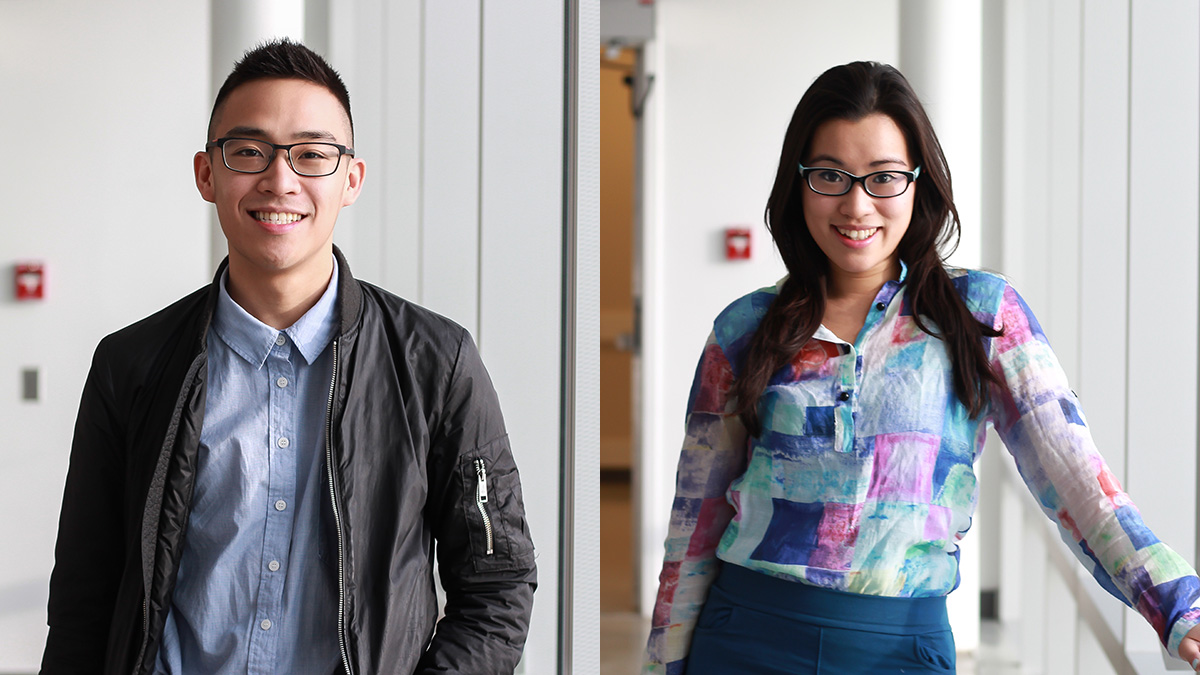Program aims to make med school more accessible for low-income, Indigenous students
 Melissa Fabrizio
Melissa FabrizioA medical student-led initiative aims to increase diversity in medicine by providing MCAT preparatory courses and a mentoring program for students from low-income and Indigenous backgrounds.
Emily Fong and Alexander Wong, second-year medical students and co-creators of the MD Admissions Initiative for Diversity and Equity (MD-AIDE), said the initiative was conceived as a response to a “huge underrepresentation” of marginalized groups in the U of A’s medical program.
While the MD program reserves several positions each year for students from underrepresented groups, including Indigenous students, Wong said they’re rarely all filled.
“The barriers that are keeping Indigenous and lower-income students out of medicine are multiple,” Wong said. “But we found that the admissions hurdle was one of the biggest.”
Wong said the Medical College Admissions Test (MCAT) — a standardized entrance exam for most North American medical schools — is notoriously difficult to prepare for, often requiring hours of classroom instruction and independent study. Local MCAT preparatory courses costs upwards of $2,000, a price many students from lower-income families are unable to afford.
“That doesn’t even include the $400 needed to register for the exam, or the costs of accessing exam bank questions, and buying MCAT review books,” Wong said. “Those who can afford (this) have a definite leg up in the admissions process.”
Through the MD-AIDE program, students with financial need can access a comparable prep-course for $60. Courses are taught by current medical students and include access to review books, practice questions, and six hours of formal in-class instruction per week from May to July.
Aside from financial costs, Fong said a second barrier holding back low-income and Indigenous students is a lack of social support.
“A lot of our classmates have close family members or parents who work in medicine,” Fong said. “So that gives them a leg up in terms of early exposure, having them consider medicine as a viable career choice.”
Fong said the path to medical school isn’t one you can make overnight. It’s difficult to craft a competitive application, requiring not only successful completion of the MCAT, but also demonstrated hours of community engagement and passing a rigorous interview.
To weaken these social barriers, students in the program will be set up with career mentors from similar backgrounds. Fong hopes this will help students build a pillar of support and provide a place where students can obtain career advice and guidance.
To aid in the outreach process and ensure the program was inclusive of all Indigenous students, the group have collaborated with the Aboriginal Student Services Centre and the U of A’s Division of Community Engagement.
“It was really important for us to establish strong partnerships with organizations that already have strong ties with Indigenous communities,” Fong said. “To really break through our university bubble.”
More than 57 students have already applied to the program, with approximately a quarter of applicants identifying as First Nations or Métis. 30 applicants will be selected based on demonstrated financial need.
Applications are open until February 2 and students from any post-secondary institution in Edmonton regardless of year, major, or GPA are welcome to apply.
“Both Alex and I (are) really interested in social justice and health equity, so we’ve been working towards this goal for almost a year,” Fong said. “It’s so exciting to see it finally starting.”




